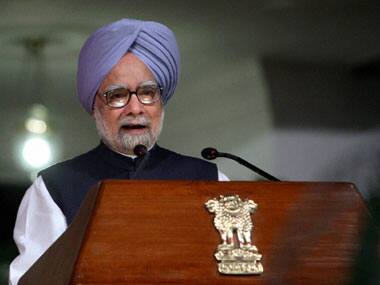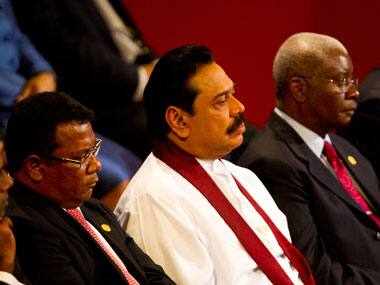In the first line of his first speech on Indian foreign policy in 1946, India’s soon-to-be first Prime Minister, Jawaharlal Nehru, pledged to adhere to the principle of “full participation in international conferences.” Nehru was referring to the fact that India, which was still not a full member of multilateral forums, would no longer be a colonial ‘dependent’ nation. Despite the different context today, it is that speech of Nehru’s made in the Constituent Assembly, that Prime Minister Manmohan Singh must pay heed to as he makes his decision on whether to travel to Colombo next month for the Commonwealth Heads of Government Meet (CHOGM). First things first. CHOGM is not an indispensible part of the Prime Minister’s agenda. In the past, the Prime Minister has requested the Vice-President or the External Affairs Minister to officiate on his behalf, with very little negative impact. But the events leading up to this summit are what make it imperative for him to attend. Not for the Commonwealth organisation. Not even for Sri Lanka, or the fate of India-Sri Lanka ties, although they will be dealt a decisive blow if Dr. Singh decides to skip the visit. [caption id=“attachment_1202097” align=“alignleft” width=“380”]  PTI[/caption] It is necessary for the Indian Prime Minister to attend the meet, in order to show India’s commitment to its own foreign policy principles. None of these principles is set in stone, but they have been the base on which India’s image in the world has been built. To begin with, there is the principle of supporting neighbours. In a speech to Indian Foreign Service probationers in June 2008, Dr. Singh said: “The most important aspect of our foreign policy is our management of our relations with our neighbours. […] We don’t know adequately enough of what goes on in our neighbourhood. And many a times our own thinking about these countries is influenced excessively by western perceptions of what is going on in these countries.” Some would argue that India’s thinking on Sri Lankan human rights violations is, in fact, educated by western countries. In the past two years, India has voted at the United Nations Human Rights Council against Sri Lanka on the basis of U.S. resolutions. Western organisations like Amnesty International and Human Rights Watch are the main accusers in this regard, and the US’s neighbour, Canada, remains the only country that has heeded its call to boycott CHOGM so far. In an interview to the CNN-IBN channel last week, Sri Lanka’s High Commissioner said: “Sri Lanka would be going ahead hosting the conference and we are happy at the level of participation that we have. It will be those who do not participate who will be isolated, not those who are participating.” While India need not worry about being isolated if it takes a principled stand, the question whether in fact only principles will be the ones that will be cast aside is important. After all, the Prime Minister has always made a point of attending multilateral forums when they are held in the subcontinent. He has done this in the past despite outstanding bilateral issues with the host country. Within two years of the Parliament attack and Operation Parakram, for example, Prime Minister Vajpayee travelled to Islamabad for the SAARC summit, and just months before the end of the war against the LTTE in May 2009, when most of the human rights excesses occurred, Dr. Singh attended the SAARC summit in Colombo. To not go now would be a departure from his own practice of continuing to engage at the highest level with neighbours, ignoring calls to the contrary from the Opposition and others within the country. Terror is another major foreign policy plank for India, and the Prime Minister must consider the inconsistent message that his government would be sending out on this issue. On the one hand, Dr. Singh has made strong statements at the UN on Pakistan’s refusal to cooperate in shutting down terror camps operating from its territory. On the other hand, if one follows the logic of the Tamil Nadu Assembly resolution last week, it is for the offences committed during the shutting down of LTTE terror camps that India must penalise Sri Lanka. The war on the LTTE was something India assisted Sri Lanka with at the time, especially given the LTTE’s record of killing former Prime Minister Rajiv Gandhi and many other Indians. India’s case has already been weakened by the government’s failure to keep its promises to Bangladesh — where in return for the Sheikh Hasina government’s actions in shutting down HuJI terror camps, handing over more than 20 terrorists to India, and ending cross-border firing, New Delhi hasn’t yet ratified the Land Border Agreement or the Teesta water settlement. The immediate victim may be Ms. Hasina, who could lose the election to her anti-India rivals Khaleda Zia and the Jamaat-e-Islami. But in the long run, India will lose too, and may face another cycle of militancy being fomented in Bangladesh. [caption id=“attachment_1202101” align=“alignleft” width=“380”]  Reuters[/caption] In Tamil Nadu, there are worrying signs of the resurgence of the LTTE and Sri Lankan separatist Tamil groups like the Transnational Government of Tamil Eelam (TGTE) that will eventually turn on India as well. In September this year, Tamil Nadu’s ‘Q’ branch said it arrested members of a sleeper cell of the LTTE in Pammal, including senior cadre responsible for recruiting Tamil youth as well as men with training in explosives. The dangers for India are obvious, but it is also important to study where the harbouring of such groups is in direct contravention of India’s Panchsheel principles that advocate “non-interference in each other’s internal affairs.” There is also the long-held principle of supporting democratic forces in our foreign policy. So far, India’s concerns about the plight of Sri Lankan Tamils post-war have been informed by the Tamil National Alliance, formerly a separatist opposition group, which joined the political mainstream in Sri Lanka. In the elections held in the Northern Province this year, where a massive 68 percent turned out to vote, it is the TNA that won a clear victory, defeating President Rajapaksa’s candidates, but proving in the process that the elections held were fair. At a time when the newly sworn-in Provincial Chief Minister, CV Wigneswaran, has rejected calls to boycott the Colombo CHOGM, and expressed hopes that Dr. Singh will attend, it will be hard to explain that India’s concerns for Sri Lankan Tamils outweigh the concerns of their own democratically elected government. One of the sore points for India’s relations with its other island neighbour, the Maldives, was that New Delhi ignored the pleas of Mohammad Nasheed’s elected government when it was ousted. Two years later, India has lost influence among all the political players there as a result of straying from the democratic principle, and even a visit by Foreign Secretary Sujatha Singh there last month did not succeed in ensuring elections. Finally, there is the principle that India’s foreign policy is the prerogative of the Centre, not the State. In the last four years, since the end of the war, India has been a key partner in Sri Lanka’s reconstruction process. It has achieved some success in providing homes to IDPs (Internally Displaced Persons), building power and railway infrastructure, and nudging the Sri Lankan government on the elections in the Northern Province as well as on implementing the 13th Amendment. Despite this high level of engagement from the Union government, it would seem contradictory and counter-productive for the Prime Minister now to refuse to attend the Commonwealth meeting, bowing solely to pressure from the Tamil Nadu Assembly. With six months or so to go for general elections, each step the Prime Minister takes today on the international stage will be seen in the context of the legacy he bequeaths on India’s foreign policy. Going to Sri Lanka would then be a reaffirmation of the first principles of India’s foreign policy that he has so often spoken of. It is equally significant, if coincidental, that Nehru outlined the Doctrine of Panchsheel that has guided India’s dealings with the world, at the Asian Prime Minister’s Conference nearly 60 years ago, in a city none other than Colombo. (This piece also appeared in The Hindu on 29 October,2013)
It is necessary for the Indian Prime Minister to attend the meet, in order to show India’s commitment to its own foreign policy principles.
Advertisement
End of Article


)

)
)
)
)
)
)
)
)



